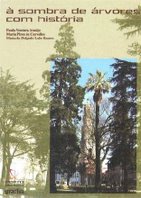Erva-prata


Paronychia argentea
Characters:
Francisco Pizarro, Commander of the Expedition
Fray Marcos de Nizza, Franciscan Friar
De Nizza. Look hard, you will find Satan here, because here is a country which denies the right to hunger.
Pizarro. You call hunger a right?
De Nizza. Of course. It gives life meaning. Look around you: happiness has no feel for men here, since they are forbidden unhappiness. They hold everything in common. So they have nothing to give one another. They are part of the seasons, no more; as indistinguishable as mules, as predictable as trees. All men are born unequal: this is a divine gift. And want is their birthright. Where you deny this and there is no hope of any new love, where tomorrow is abolished, and no man ever thinks "I can change myself", there you have the rule of Antichrist.
(...)
When I came here first I thought I had found Paradise. Now I know it is Hell. A country which castrastes its people. What are your Inca subjects? A population of eunuchs, living entirely without choice.
Pizarro. And what are your Christians? Unhappy hating men. Look: I am a peasant, I want value for money. If I go marketing for gods, who do I buy? Christ of Europe, with all its deaths and brooding, or Atahuallpa of Peru? His spirit keeps an Empire sweet and still as corn in the field.
De Nizza. And you're content to be a stalk of corn?
Pizarro. Yes, yes! They're no fools, these sun men. They know what cheats you sell on your barrow. Choice. Hunger. Tomorrow. Well, they've looked at your wares and passed on. They live here as part of nature, no hope and no despair.
De Nizza. And no life. Why must you be dishonest? You are not only part of nature, and you know it. There is something in you at war with nature; there is in all of us.
Peter Shaffer, The Royal Hunt of the Sun (Samuel French - London, 1964)





3 comentários :
Paroníquia é o termo que se usa em medicina para o vulgar panarício: doença junto das unhas.
Alguma relação?
Gi: Esta ervinha era usada tradicionalmente como remédio contra essa inflamação da pele junto à raiz, ou em volta, das unhas, antes de surgirem os fungicidas de laboratório. É daí que lhe vem o nome Paronychia, que deriva das palavras gregas Para (perto) e onyx (unha).
Obrigada, Maria. Eu conheço a etimologia da palavra, mas desconhecia a ervinha e o seu uso, gostei de saber.
Enviar um comentário